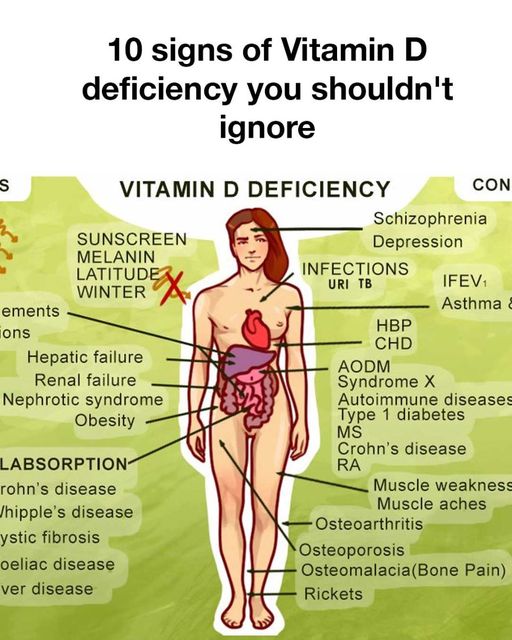ADVERTISEMENT
Frequent Illnesses and Infections
A weakened immune system can be a direct result of vitamin D deficiency. If you find yourself catching colds or infections more often than usual, it might be a sign that your body needs more vitamin D.
Bone and Back Pain
Vitamin D is crucial for bone health. A deficiency can lead to chronic pain in bones and lower back due to impaired calcium absorption, which weakens the bone structure over time.
Depression and Low Mood
There is a link between vitamin D levels and mood regulation. Low levels of vitamin D have been associated with increased risk of depression and mood disorders.
Impaired Wound Healing
Slow healing of wounds and cuts can indicate a vitamin D deficiency, as this nutrient plays a significant role in the creation of compounds necessary for the healing process.
Hair Loss
Severe hair loss can be a symptom of vitamin D deficiency. This vitamin is involved in the regulation of the hair follicle cycle, and its lack may contribute to conditions like alopecia.
Muscle Pain
Chronic muscle pain and weakness are often linked to low vitamin D levels. Studies have found that vitamin D plays a role in muscle function and that deficiency can lead to unexplained muscle discomfort.
Bone Loss
Vitamin D is essential for maintaining bone density and strength. Prolonged deficiency can lead to bone loss, making bones more susceptible to fractures and conditions like osteoporosis.
Digestive Issues
Some digestive disorders, such as Crohn's disease, celiac disease, and inflammatory bowel disease, can affect the absorption of vitamin D, leading to deficiency and associated symptoms.
Weight Gain and Obesity
There is emerging evidence to suggest a link between low vitamin D levels and weight gain or obesity. This could be due to vitamin D's role in metabolic processes.
How to Diagnose Vitamin D Deficiency
Diagnosing vitamin D deficiency typically involves a simple blood test known as the 25-hydroxy vitamin D test. This test measures the level of vitamin D in your blood and helps in determining whether you need supplements or dietary changes.
Effective Treatment and Prevention Strategies
To treat and prevent vitamin D deficiency, it is important to get regular exposure to sunlight, eat foods rich in vitamin D such as fatty fish, fortified dairy products, and eggs, and consider taking supplements if necessary. Consult your healthcare provider for personalized advice based on your specific condition and lifestyle.
Advertisement
Conclusion
Vitamin D deficiency is a common yet often overlooked health issue that can lead to a variety of serious health problems. By being aware of the symptoms and taking proactive measures, you can ensure that you maintain optimal vitamin D levels for overall health and well-being.
ADVERTISEMENT
